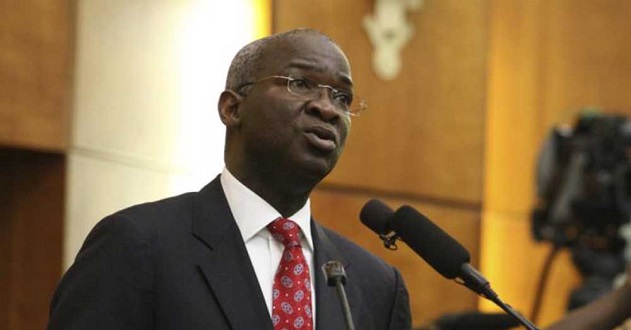Business
DisCos used to complain of shortage, now they have excess power they can’t distribute— Fashola

The Minister of Power, Works and Housing, Babatunde Fashola, said the problem facing the nation’s electricity sector has changed from unavailability of power for distribution to an excess capacity of about 2,000 megawatts of power left unused.
The minister noted that the challenge now is that the DisCos cannot distribute all available power.
Fashola made this disclosure while addressing newsmen at a briefing in Abuja on Monday.
According to him, “It is now obvious, from 2016 when the Discos complained about lack of power to distribute, the problem today is that the Discos cannot distribute all of the power that is available, leaving the sector with an unused capacity of 2,000 megawatts approximately.”
Although, the minister said DisCos could not have been solely responsible for the failures in the sector. He, however, stressed that their contribution was significant.
“This is not a time to trade blame because there is enough blame to go round, for me, it is a time to reiterate everybody’s responsibilities and urge us to brace up to do what we are obliged to do, which is to serve the people,” he added.
The minister also urged the DisCos to be hardworking or leave the business of power distribution for people who are willing to compete and uphold their obligations in the sector.
Read also: Katsina, Dangote sign N500m deal for tomato production
He said the DisCos have failed to live up to expectations in the industry and the government would sit back and allow them destroy the nation’s power sector with their poor performances.
Fashola also stated that the financial remittances of the DisCos have been very poor, adding that at the moment, they owed the Nigerian Bulk Electricity Trading Plc (NBET) a whooping N500 billion as debts for electricity sold to them by NBET.
“It must be obvious to the ordinary person that the supply of power is now a private business in the hands of private operators and in the final end, in the hands of the DisCos.
“But because of the critical and sensitive nature of power supply, government has not left the supply solely. Government at federal, state and local government, as well as former employees of PHCN hold 40 per cent of the shares in the DisCos.
“In addition, government is responsible for regulating the behaviour and compliance through the NERC which is like what the Central Bank is to the banking sector,” Fashola said.
RipplesNigeria… without borders, without fears
Click here to join the Ripples Nigeria WhatsApp group for latest updates.
Join the conversation
Support Ripples Nigeria, hold up solutions journalism
Balanced, fearless journalism driven by data comes at huge financial costs.
As a media platform, we hold leadership accountable and will not trade the right to press freedom and free speech for a piece of cake.
If you like what we do, and are ready to uphold solutions journalism, kindly donate to the Ripples Nigeria cause.
Your support would help to ensure that citizens and institutions continue to have free access to credible and reliable information for societal development.
























